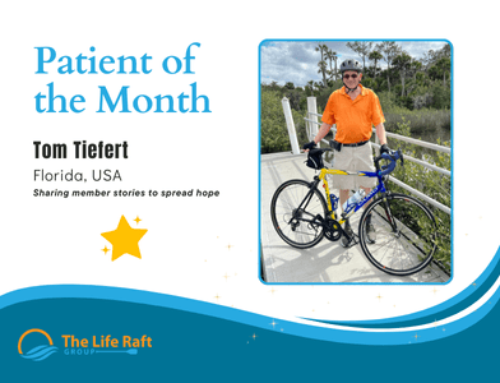 1. Acknowledge your feelings. When a loved one is diagnosed with a serious illness, it is normal to feel a whole range of emotions, from fear to anger to sadness. Allow yourself to feel your feelings. If they are overwhelming, seek support from a trusted friend, a spiritual advisor or clergy, or a treatment professional. Remember, you are not alone.
1. Acknowledge your feelings. When a loved one is diagnosed with a serious illness, it is normal to feel a whole range of emotions, from fear to anger to sadness. Allow yourself to feel your feelings. If they are overwhelming, seek support from a trusted friend, a spiritual advisor or clergy, or a treatment professional. Remember, you are not alone.
2. Build a support system. Assure that you are not alone in this journey by gathering together a team of people to support you and your loved one. Your team should include treatment professionals, friends and loved ones, providers of support services and other caregivers via a support group or advocacy organization. Be sure to include people outside the world of cancer, especially those who make you laugh.
3. Accept help from those who offer. Be specific when asking for assistance, i.e. help with shopping for groceries, picking up the children at school, sitting with your loved one while you grab a cup of coffee with a friend.
4. Educate yourself. The world of your loved one’s disease is an alien one. Seek sources of reliable information. Empowered patients and caregivers have higher rates of survival. The Life Raft Group is a great source of information.
5. Keep organized medical records. Having all the information about your loved one’s treatment is empowering. Be sure to prepare for any medical visits by jotting down questions and concerns in advance. Your loved one may be too stressed at the time of the actual appointment.
6. Let go of expectations. This is hard. It does not in any way mean “abandoning hope.” It simply means taking one step at a time and dealing with any information and interventions as they come. Staying in the moment helps to alleviate any disappointment and to avoid any overblown expectations. It means taking the treatment journey one day at a time.
7. Don’t avoid the difficult and practical conversations. It is important to plan early on, preferably before a family m ember becomes ill, for practical issues such as writing an advanced directive and having all important documents in a secure location. All of us, whether we have a serious illness or not, should have in place important paperwork such as a designated healthcare agent, power of attorney and a will.
8. Balance the practical with the hopeful. Talk about and plan things to look forward to. Share moments of gratitude each day together.
9. Take care of your own health. In order to be there for your loved one, it is vital that you tend to any health issues you may have. Be sure to keep up with your own medical appointments, eat well and get enough rest.
10. Don’t lose sight of your true self. You are not just a caregiver. Your loved one is not just a patient and is not their disease. As your caregiver journey begins, sit down together and make a list of all the things each of you are -husband, father, golfer, artists, guitar player, poet, craftsman. Find a place to post your lists in plain sight, so that you are reminded of your authentic selves.



